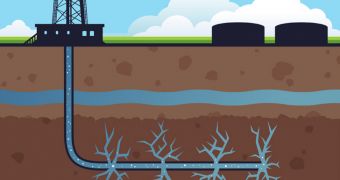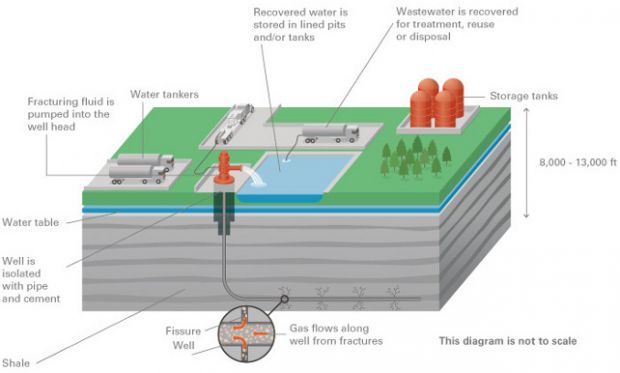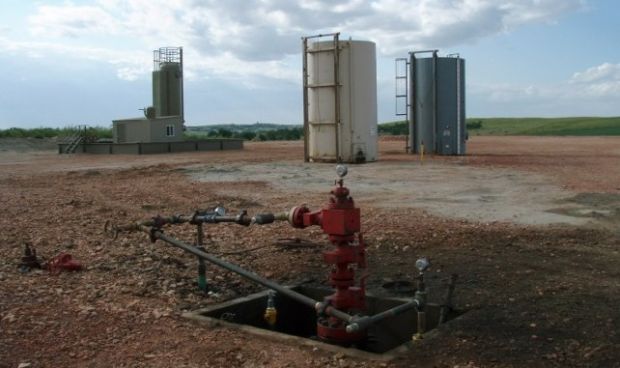If the global energy sector were high school, odds are fracking would have a fairly difficult time getting a date for prom. Provided that it had its heart set on going out with a good-looking environmentalist and not some oil and gas giant, that is.
What I mean to say is that, as of lately, there has been a lot of talk about fracking. And by “talk” I mean protests, public demonstrations, and badmouthing. In fact, it was last Sunday that anti-fracking protests were held in about 60 cities in my home country.
Hence, I decided that it might not be such a bad idea to run an editorial on fracking, and pin down why it is exactly that so many people oppose this practice despite the fact that oil and gas companies keep telling them that things aren't as bad as they think.
Truth be told, if anyone can be labeled a fracking connoisseur, surely it is companies such as energy giant Chevron, and oil and gas king BP that deserve this title.
Chevron, BP, and others of their kind would never do anything to endanger public health or ruin the environment, right? Well then, why is it that people just won't take their word for granted when they say that fracking is the yellow brick road to sustainability and limiting climate change?
I don't know about you, but I for one think that the five paragraphs above do for an introduction. Consequently, let us beat about the bush no longer and set out to explore the wonderful and highly controversial world of fracking instead.
What on Earth Is Fracking Anyway?
Just in case some of the people reading this editorial are not all that familiar with this practice, here is what fracking, otherwise known as hydraulic fracturing, is all about: injecting pressurized liquid in the underground in order to cause it to fracture and thus access gas and oil reserves that human society would otherwise not be able to exploit.
Oil and gas giant BP, who has been toying with this technique for a while now, has even pieced together a diagram showing exactly what goes down at a fracking site. The diagram is available below, and it shows how, in order to access shale gas reserves, all energy companies have to do is pump fracturing fluid in the ground by means of a well.
BP is so honest it even admits that this so-called fracturing fluid is basically water mixed with sand and chemicals. The fact that this liquid is pumped at high pressure is what causes rocks in the underground to crack and release the natural gas that would otherwise remain trapped.
According to BP, the fracturing liquid used at the company's fracking sites contains an average of 99.5% sand and water. The oil and gas giant further stresses that the chemicals merely serve to reduce friction and keep bacteria from growing inside hydraulic fracturing wells.
What Are the Advantages of Fracking?
This might come as a bit of a shock for some people, but there are some perks to fracking. Thus, it has been argued that, by making it possible for companies to access oil and gas reserves hidden deep in the underground, hydraulic fracturing ensures energy security. Besides, natural gas has been documented to cause less greenhouse gas emissions than coal when used in power generation.
Because of this, there are some who argue that, given the urgency to limit climate change and global warming, promoting the use of gas extracted from shale formations, even if by means of hydraulic fracturing, is the right thing to do. More so seeing how, according to a recent report, said phenomena are already happening.
If Fracking Is So Great, Why Are People Badmouthing It?
First off, it must be said that, although natural gas does produce less carbon dioxide than coal while generating the same amount of energy, there is one small, insignificant detail that hydraulic fracturing supporters tend to leave out. This piece of information is the fact that natural gas is largely made up of methane.
As detailed on several occasions, methane is one really nasty greenhouse gas. In fact, it has been documented to be several dozen times more potent than carbon dioxide when it comes to messing up the planet. This means that simple leaks at fracking sites have high chances to offset the benefits of using natural gas instead of coal.
Besides, the chemicals added to the water and sand mixture injected into hydraulic fracturing wells are classified as hazardous. This means that, should they work their way into groundwater, they could constitute a threat to public health and natural ecosystems in the proximity of fracking sites.
Apart from these issues, what worries environmentalists is the fact that said practice uses quite a lot of water. Although BP and other companies of its kind claim that the water used in fracking is recovered and part of it is reused, there are many who maintain that the energy industry must start taking better care of this resource.
More so given the fact that, of the water that our planet presently accommodates for, mankind has access to just 0,007%. This is because 97.5% of Earth's water is salt one, and of the fresh one that remains, 70% is frozen in icecaps and quite a lot of it is either found in soil or moisture, or sits in the underground and cannot be exploited.
Another problem with fracking is that this practice can cause earthquakes to occur, environmentalists argue. BP dismisses these complaints and, on its website, writes that hydraulic fracturing merely creates very small earth tremors that cannot even be detected on the surface.
The oil and gas giant also claims that, despite the fact that hydraulic activities have until now been performed over two million times, there has been just one occasion, i.e. near Blackpool, in England, when this practice was scientifically linked to seismic events detected at the surface of the Earth.
Then again, media reports say that, since the beginning of this year until present day, the state of Oklahoma in the US has experienced more magnitude 3 earthquakes than it did the entire 2013. Strangely enough, this increase in seismic activity in the region coincides with a boom in fracking activities.
Add to this the fact that fracking sites go hand in hand with increased traffic, noise, dust, light, and air pollution, and the fact that hydraulic fracking wells and their accompanying gear are not exactly something one would like in the background of their perfect Facebook profile picture, and it is easy to see why many folks want this practice be put an end to as soon as possible.
But BP and Others Say It's OK, Right? Shouldn't We Trust Them?
Actually, we shouldn't trust them, and here is why: BP also said that it had drilling in the Gulf of Mexico all figured out, and then the Deepwater Horizon oil spill happened in 2010 and proved them wrong. What's more, I don't think that there is an energy company in this world not to have ever been involved in any incident bound to affect the environment.
Besides, I know that the BP diagram showing a fracking site would have us believe that green grass can just keep growing next to hydraulic fracturing wells and the other infrastructure needed to carry out such operations, but the truth is that, in the real world, landscapes affected by fracking look more like this:
So here is what I think: fracking is bad, and, even if gas extracted from shale formations is greener than coal, the fact that hydraulic fracturing comes hand in hand with threats to public health and natural ecosystems makes it lose its appeal. Hence, it would perhaps be best to stop fooling around with oil and gas reserves buried in the underground, leave them there, and instead focus on harvesting renewables.Mind you, I am not a dictator (yet), so we can agree to disagree on this topic. Otherwise put, feel free to share your thoughts on the matter at hand in the comments section below.

 14 DAY TRIAL //
14 DAY TRIAL // 



